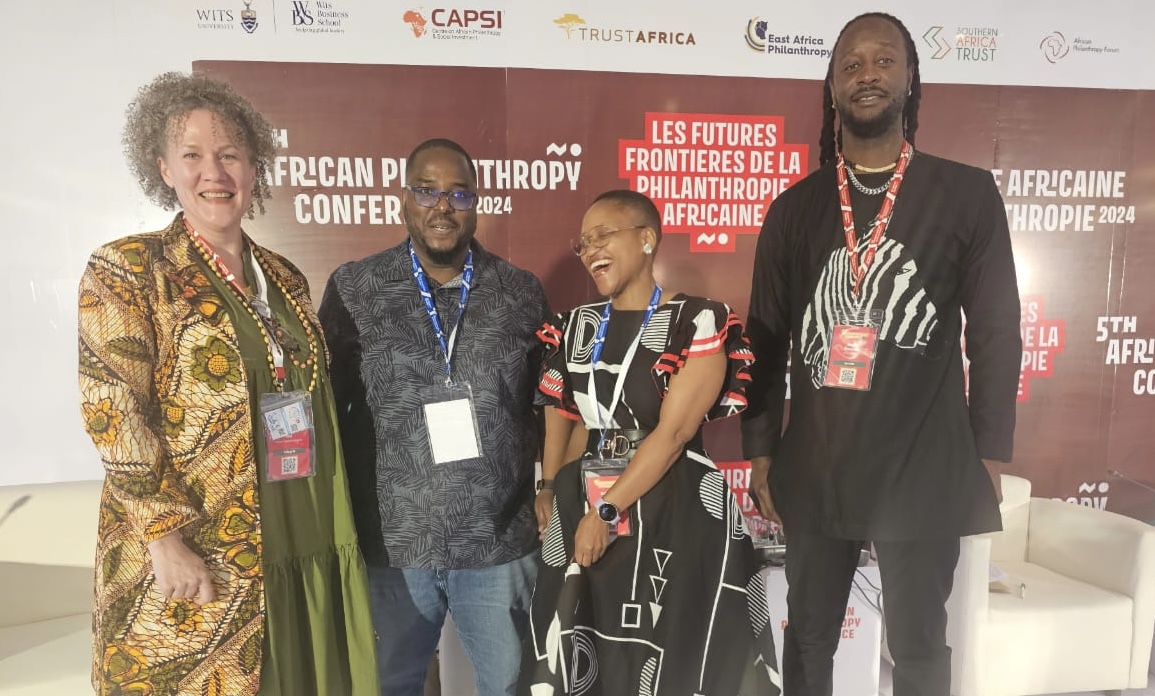5th African Philanthropy Conference
The 5th Annual African Philanthropy Conference (5th APC) was hosted in Victoria Falls, Zimbabwe and Livingstone, Zambia from Monday 29 July to Friday 2 August 2024 by the Centre on African Philanthropy and Social Investment (CAPSI) and TrustAfrica in collaboration with The Africa Philanthropy Forum, Africa the Philanthropy Network, the East Africa Philanthropy Network (EAPN) and Southern Africa Trust. Under the theme “The Next Frontiers of African Philanthropy”, this edition of the conference marks a critical point in the exploration of the evolving philanthropic landscape on the continent. It represents a collective response to the dynamic and significant changes reshaping African philanthropy, focusing on in-depth examinations of emerging trends, innovative strategies, and their potential impacts on traditional philanthropic models.
Moira Faul, NORRAG’s Executive Director gave a presentation during the Academic Presentations, contributing to the body of knowledge on African philanthropy and social investment. Her presentation focused on decolonising development in education, a taster of her forthcoming edited book with NORRAG Senior Fellows and the recently published Policy Insights on Models of Philanthropy in Education.
In this volume, we undertake an academic critique of decolonisation and contemporary coloniality (the ongoing effects of colonisation), and move beyond critique to provide potential constructive ways forward to challenge and reinvent relations of domination. This analysis of coloniality examines the ongoing effects of these deliberate efforts to dominate, exploit and control other territories, people, environments and economic production, that is, how coloniality continues to shape all aspects of the social order in which we think and act; teach and research. Tracing continuities with historical colonialism help us to better understand our contemporary world and its enduring relations of dominance, and then to propose ways to rethink, reframe, reimagine, reinvent, restore and repair development and education towards the development we want, not that which is imposed upon us; towards more just and sustainable futures for all. In this chapter, we introduce the premise of this volume: that decolonising development and education holds the potential to challenge dominant global narratives and empower marginalised communities, laying out possibilities through which systemic inequalities can be confronted, and exploring opportunities for thinking in different ways about the sustainability of our planet. Moving beyond geographies of colonisation to its essence—domination—this volume addresses questions of unlearning, data coloniality, the corporatisation of higher education, and forms of reinventive, restorative, and reparative action, as we challenge ourselves, each other and our readers to reimagine pathways to alternative futures, practise epistemic humility and provide critique while simultaneously advancing action toward more equal futures.

